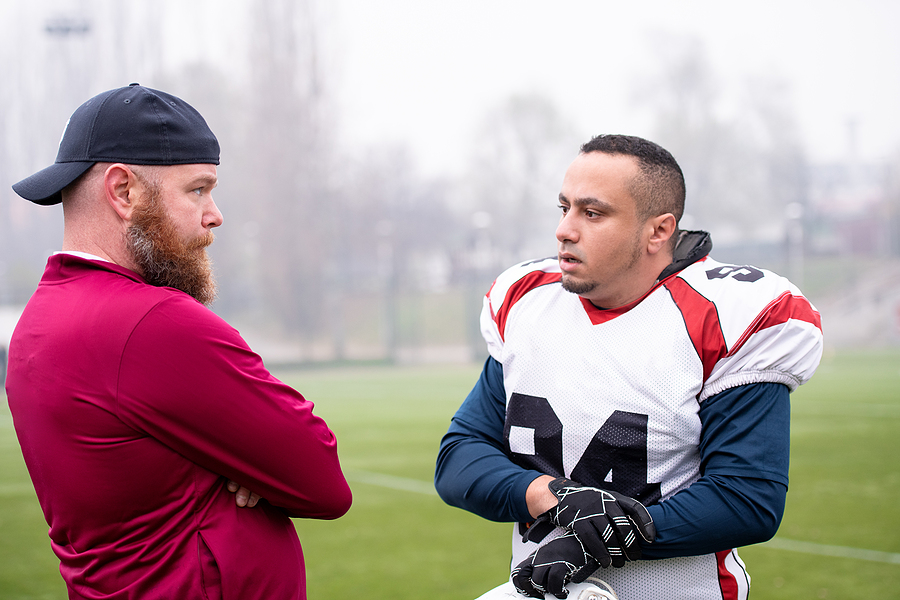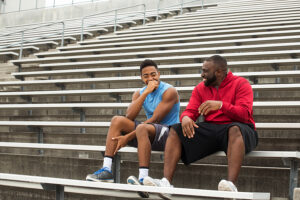Where Are Sports Psychologists Most Needed?
Sports psychology has emerged as a crucial field within the world of athletics, with the understanding that mental fitness is just as vital as physical prowess for optimal performance. Sports psychologists play a pivotal role in helping athletes cope with pressure, manage anxiety, build resilience, and enhance their overall mental well-being. As the demand for mental health support in sports grows, the need for sports psychologists is rising. This article will explore various sports organizations and regions where sports psychologists are most needed to promote peak performance and foster athletes' mental and emotional growth.

Where in the Country Are Sports Psychologists Needed?
While the demand for sports psychologists is growing across the globe, some regions may have limited access to mental health resources for athletes. Smaller cities and rural areas with limited sports psychology infrastructure may have an unmet need for specialized mental health support for athletes.
These regions present opportunities for sports psychologists to make a significant impact by providing much-needed mental health services to athletes at various levels. By collaborating with sports organizations, schools, and local communities, sports psychologists can extend their reach to athletes who might otherwise not have access to mental health support. Below are a few examples of states that have an increased need for psychologists both in and outside of the sports realm:
West Virginia
Out of every state. West Virginia has the highest need for psychologists of all types. According to the BLS, there are 0.37 psychologist jobs available for every 1000 jobs. While there are now pro sports organizations in West Virginia, college sports and adolescent sports are a huge part of the culture in this rural state. Many college athletics teams employ the help of sports psychologists, such as West Virginia University.
Rhode Island
The New England state of Rhode Island is a perfect example of an area that is in need of sports psychologists. For every 1000 jobs in Rhode Island, there are 0.35 psychologist positions available. While many sports teams exist, there are few sports psychologists to support the large demand for their services. Providence College is an example of an organization where sports psychologists are employed in Rhode Island, and there is an entire branch of their athletics department devoted to the psychological needs of athletes.
Washington, D.C.
Capitol City has many opportunities for sports psychologists looking to get out in the field. The Washington Commanders, The Washington Nationals, and The Washington Capitols are all examples of pro sports teams in Washington, D.C. that employ sports psychologists. The gap between the demand for sports psychologists and the number of sports psychologists available is huge and there are 0.3 psychologist positions available per every 1000 jobs in D.C..
Maine
While the state of Maine is lacking in professional sports teams, the rural state is dealing with a shortage of sports psychologists and psychologists in general. For every 1000 jobs in Maine, there are 0.3 psychologist positions available. The athletics department at Colby College in Waterville, Maine is one example of organizations that have employed the help of sports psychologists in Maine.
Maryland
The Baltimore Ravens, Baltimore Orioles, and the University of Maryland are just a few sports organizations that employ sports psychologists. There are also a number of private practices that serve the greater Maryland community. The need for sports psychologists is apparent in this mid-Atlantic state and for every 1000 jobs, there are 0.25 psychology jobs available.
What Organizations Have the Most Need For Sports Psychologists?
In the world of sports, achieving peak performance goes beyond physical abilities. The mental and emotional well-being of athletes plays a crucial role in determining their success. As a result, sports organizations of all levels and disciplines have come to recognize the importance of mental preparation and psychological support. Below, we will explore various sports organizations and their unique needs for sports psychologists. From professional leagues to collegiate programs and youth sports organizations, each entity seeks to optimize its athletes’ mental resilience and performance, making sports psychology an indispensable aspect of the pursuit of sporting greatness.
RELATED: Learn about Sports Psychology Degree Levels
Professional Sports Organizations
Professional sports organizations, such as those in the National Football League (NFL), National Basketball Association (NBA), Major League Baseball (MLB), National Hockey League (NHL), and Major League Soccer (MLS), have recognized the significance of mental preparation and emotional well-being in athletes. According to the Bureau of Labor Statistics (BLS), the employment of mental health professionals in the spectator sports industry makes up about 23% of the entire industry’s job pool. The high-stakes, competitive nature of these leagues places immense pressure on athletes to perform consistently at the highest level.
Sports psychologists are invaluable assets within these organizations, helping athletes manage stress, improve focus, and maintain mental clarity amid the intense demands of professional sports. Whether it’s helping a quarterback stay composed during a critical game-winning drive or assisting a basketball player in overcoming performance anxiety, sports psychologists can significantly impact an athlete’s performance and career longevity.
Collegiate Athletics
College sports programs, especially in the United States, are renowned for their competitive spirit and passionate fan bases. According to the BLS, employment of psychologists in colleges, universities, and professional schools is projected to grow 6 percent from 2021 to 2031, driven by the increased demand for student mental health services. Athletes in college sports often face unique challenges, including balancing academics, sports, and social life. These demands can place considerable stress on student-athletes, affecting their mental well-being and athletic performance.
Sports psychologists are increasingly sought after within collegiate athletics to provide mental health support, performance enhancement strategies, and resources for student-athletes. By addressing the psychological challenges that student-athletes encounter, sports psychologists can contribute to both their athletic success and overall personal development during their college years.
Olympic and National Team Programs
Competing at the Olympic Games or representing a national team is the pinnacle of an athlete’s career. The pressure to perform on an international stage can be overwhelming, and mental fortitude is essential for success. According to the BLS, employment of mental health professionals in the performing arts, spectator sports, and related industries, which includes sports psychologists working with elite athletes, makes up about 23% of the employment within the industry.
Sports psychologists are essential members of Olympic and national team programs, working closely with athletes to develop mental skills, confidence, and resilience. These professionals assist athletes in coping with the intense pressure of competition, overcoming distractions, and managing the emotional highs and lows that come with representing their country. The support of sports psychologists is instrumental in helping athletes reach their peak performance during major international events.
Youth Sports Organizations
Mental well-being and emotional development are crucial for young athletes participating in youth sports. The focus in youth sports should be on nurturing a love for the game, promoting positive sportsmanship, and fostering personal growth. Unfortunately, the pressure to win and achieve results can be all too prevalent, leading to stress and burnout among young athletes.
According to the BLS, employment of psychologists in elementary and secondary schools is projected to grow 6 percent from 2021 to 2033, as schools increasingly recognize the importance of addressing students’ mental health needs. Sports psychologists play a vital role in youth sports organizations by creating a positive and supportive environment for young athletes. They help young athletes manage performance anxiety, build self-confidence, and learn valuable mental skills that extend beyond sports. By promoting a healthy mental approach to sports at a young age, sports psychologists can contribute to the long-term well-being and success of young athletes.
LEARN MORE: Find a Sports Psychology School Near You


- Professional Organizations for Sports Psychology Professionals: A Student’s Guide to Career Success - March 27, 2025
- Clinical vs. Performance Focus: Choosing the Right Sports Psychology Educational Track - March 18, 2025
- Advancing Your Career in Sports Psychology: Why a Ph.D. Is Worth It - October 24, 2024

